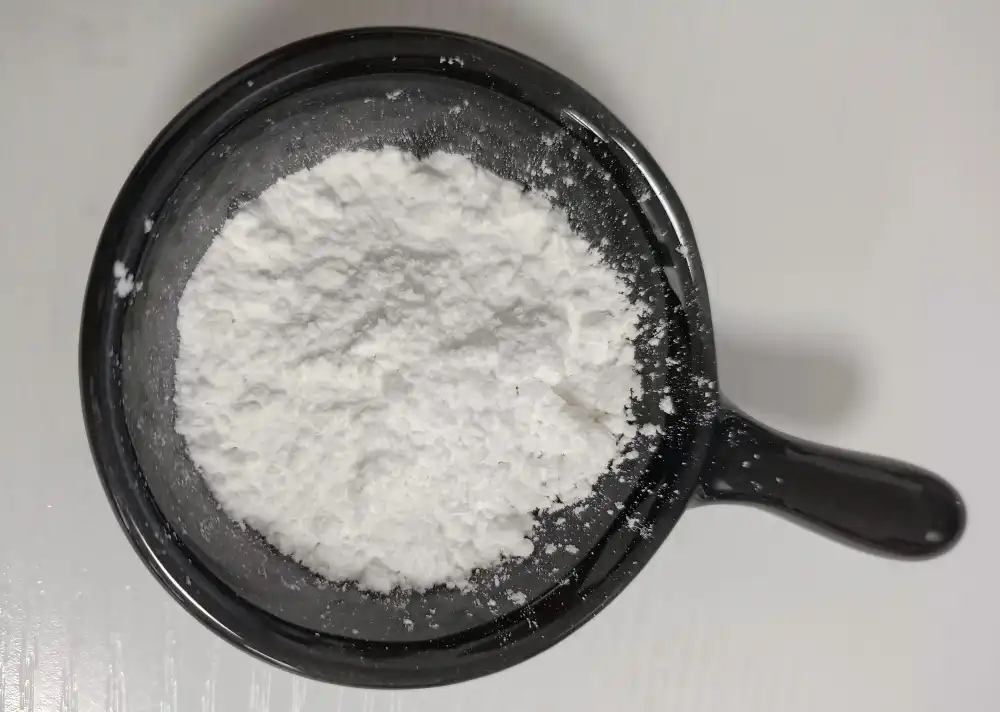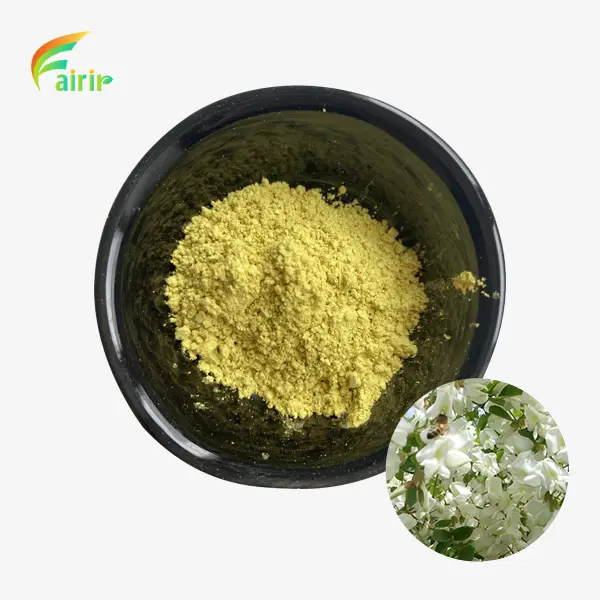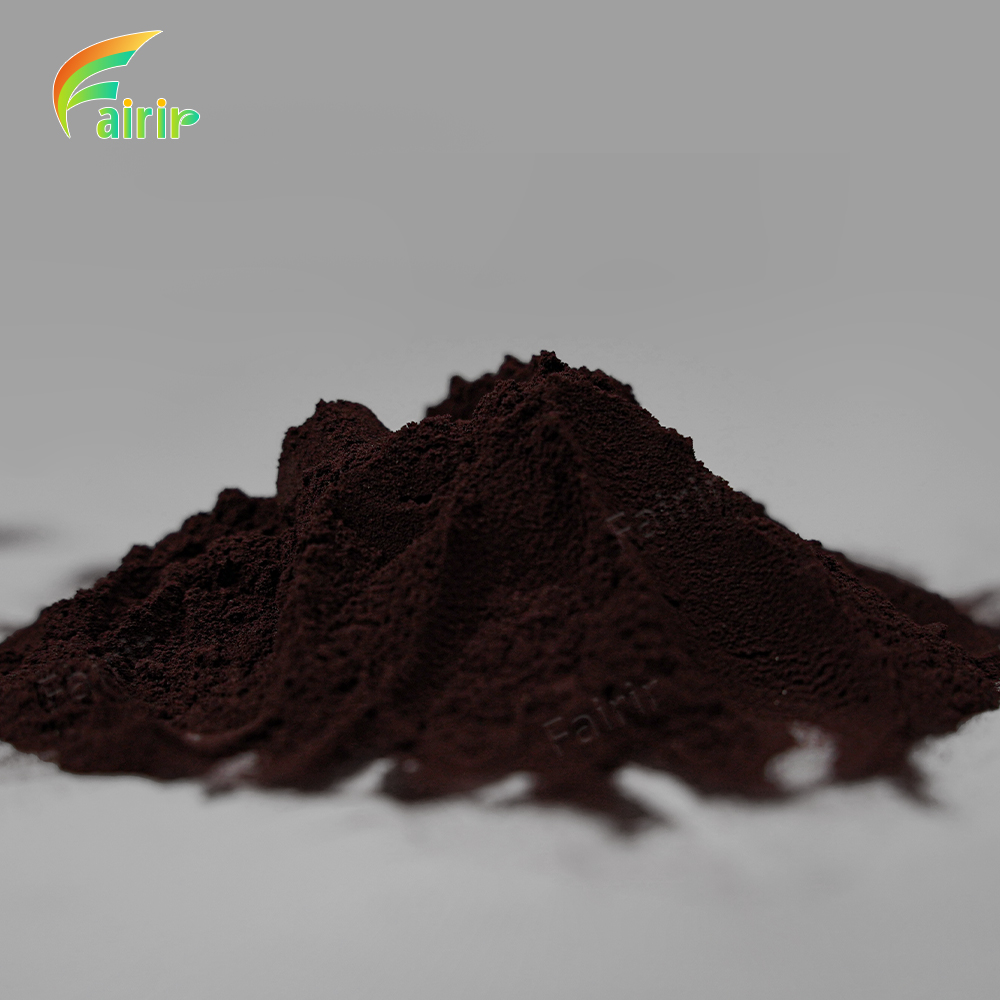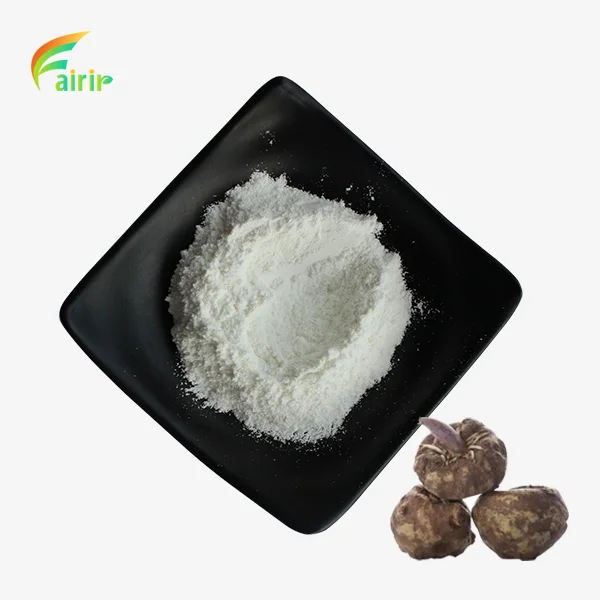Can melatonin powder enhance antioxidant therapies?
Melatonin powder, a versatile and potent antioxidant, has garnered significant attention in the scientific community for its potential to enhance antioxidant therapies. This naturally occurring hormone, known for regulating sleep-wake cycles, has demonstrated remarkable antioxidant properties that extend far beyond its traditional role. Recent studies have shown that melatonin powder can synergistically interact with other antioxidants, potentially amplifying their therapeutic effects and offering a novel approach to combating oxidative stress-related diseases. As researchers delve deeper into the mechanisms of melatonin's antioxidant action, it becomes increasingly evident that this compound may hold the key to more effective and comprehensive antioxidant strategies. The integration of melatonin powder into existing antioxidant therapies could revolutionize treatment approaches for a wide range of conditions, from neurodegenerative disorders to cardiovascular diseases, opening new avenues for improving overall health and well-being.

Synergy between Melatonin Powder and Endogenous Antioxidants: Boosting SOD, GPx, and Catalase activity
Enhancing SOD Activity
Melatonin powder has shown remarkable potential in enhancing the activity of Superoxide Dismutase (SOD), a crucial endogenous antioxidant enzyme. Studies have demonstrated that melatonin not only directly scavenges free radicals but also upregulates the expression of SOD genes, leading to increased production and activity of this vital enzyme. This synergistic effect significantly amplifies the body's natural antioxidant defenses. By boosting SOD activity, melatonin powder helps neutralize superoxide radicals more efficiently, preventing cellular damage and oxidative stress. The combination of melatonin's direct antioxidant action and its ability to enhance SOD activity creates a powerful defense mechanism against oxidative damage, potentially offering enhanced protection in conditions characterized by high oxidative stress levels.
Amplifying GPx Effectiveness
Glutathione Peroxidase (GPx) plays a critical role in cellular antioxidant defense, and melatonin powder has been found to significantly enhance its effectiveness. Research indicates that melatonin not only increases the expression of GPx but also improves its activity by maintaining optimal glutathione levels. This dual action of melatonin powder creates a more robust antioxidant environment within cells. The enhanced GPx activity facilitated by melatonin leads to more efficient neutralization of hydrogen peroxide and lipid peroxides, two major contributors to oxidative damage. By amplifying GPx effectiveness, melatonin powder contributes to a more comprehensive antioxidant strategy, potentially offering greater protection against oxidative stress-induced cellular damage and related pathologies.
Boosting Catalase Efficiency
Melatonin powder has demonstrated a remarkable ability to boost the efficiency of catalase, another key player in the body's antioxidant defense system. Studies have shown that melatonin not only increases the expression of catalase genes but also enhances the enzyme's activity through post-translational modifications. This synergistic effect results in a more efficient breakdown of hydrogen peroxide, a potent oxidative stressor. The enhanced catalase efficiency facilitated by melatonin powder contributes to a more robust cellular defense against oxidative damage. By supporting catalase function, melatonin helps maintain cellular redox balance, potentially reducing the risk of oxidative stress-related cellular dysfunction and tissue damage. This synergy between melatonin and catalase opens up new possibilities for developing more effective antioxidant therapies for various oxidative stress-related conditions.
Melatonin Powder in Combination Therapies: Improving Outcomes in Oxidative Stress-Related Diseases
Neurodegenerative Disorders
Melatonin powder has shown promising results in combination therapies for neurodegenerative disorders such as Alzheimer's and Parkinson's disease. Its ability to cross the blood-brain barrier and its potent antioxidant properties make it an ideal candidate for enhancing neuroprotective strategies. When combined with traditional antioxidants like vitamin E or C, melatonin powder has demonstrated synergistic effects in reducing oxidative damage to neurons and supporting mitochondrial function. Studies have shown that this combination approach can lead to improved cognitive outcomes and slower disease progression in animal models of neurodegenerative disorders. The multifaceted action of melatonin, including its anti-inflammatory properties and ability to modulate neurotransmitter systems, further enhances its therapeutic potential in these complex diseases, offering hope for more effective treatment strategies.
Cardiovascular Health
In the realm of cardiovascular health, melatonin powder has emerged as a valuable addition to combination antioxidant therapies. Its cardioprotective properties, coupled with its ability to enhance the efficacy of other antioxidants, make it a promising candidate for improving cardiovascular outcomes. Research has shown that when combined with traditional cardiovascular medications and antioxidants like CoQ10, melatonin powder can significantly reduce oxidative stress in the cardiovascular system, improve endothelial function, and protect against ischemia-reperfusion injury. This synergistic approach has demonstrated potential in reducing the risk of atherosclerosis, hypertension, and other cardiovascular diseases. The ability of melatonin to modulate circadian rhythms also contributes to its cardiovascular benefits, offering a holistic approach to heart health that addresses both oxidative stress and physiological rhythms.
Cancer Supportive Care
Melatonin powder has shown significant promise in cancer supportive care when used in combination with traditional antioxidant therapies. Its potent antioxidant properties, coupled with its ability to modulate the immune system and influence circadian rhythms, make it a valuable adjunct in cancer treatment strategies. Studies have demonstrated that when combined with standard chemotherapy regimens and antioxidant supplements, melatonin powder can help reduce treatment-related side effects, improve quality of life, and potentially enhance treatment outcomes. The synergistic effects of melatonin with other antioxidants have been shown to provide better protection against chemotherapy-induced oxidative damage to healthy cells while potentially sensitizing cancer cells to treatment. This multifaceted approach not only addresses the oxidative stress associated with cancer and its treatments but also supports overall patient well-being, offering a more comprehensive strategy in cancer supportive care.
Dose-Response Evidence for Melatonin Powder's Antioxidant Effects: Clinical and Preclinical Findings
Low-Dose Efficacy
Recent clinical and preclinical studies have provided compelling evidence for the efficacy of low-dose melatonin powder in exerting significant antioxidant effects. Research has shown that even at doses as low as 0.1 to 0.3 mg, melatonin powder can effectively scavenge free radicals and upregulate endogenous antioxidant enzymes. These low doses have been found to be particularly effective in maintaining circadian rhythms and supporting sleep quality, which indirectly contribute to the body's overall antioxidant status. Preclinical studies have demonstrated that low-dose melatonin can protect against oxidative damage in various tissues, including the brain and cardiovascular system, without causing significant side effects. This low-dose efficacy makes melatonin powder an attractive option for long-term antioxidant therapy, especially in populations sensitive to higher doses, such as the elderly or those with compromised liver function.
Moderate-Dose Benefits
Moderate doses of melatonin powder, typically ranging from 1 to 5 mg, have shown robust antioxidant effects in both clinical and preclinical studies. At these doses, melatonin demonstrates a more pronounced ability to enhance the activity of key antioxidant enzymes such as superoxide dismutase, glutathione peroxidase, and catalase. Research has indicated that moderate doses of melatonin powder can significantly reduce markers of oxidative stress in various conditions, including neurodegenerative disorders, cardiovascular diseases, and metabolic syndromes. Clinical trials have reported improved outcomes in patients with these conditions when moderate doses of melatonin were added to standard antioxidant therapies. These doses have also shown promise in mitigating the side effects of cancer treatments while potentially enhancing their efficacy, highlighting the versatility of melatonin powder as an adjunct in various therapeutic contexts.
High-Dose Applications
High-dose melatonin powder, typically exceeding 10 mg, has been the subject of numerous preclinical and some clinical studies, particularly in the context of acute oxidative stress conditions and severe pathologies. Research has shown that high doses of melatonin can exert powerful antioxidant effects, capable of significantly reducing oxidative damage in models of stroke, traumatic brain injury, and sepsis. In cancer research, high-dose melatonin has demonstrated potential in enhancing the efficacy of chemotherapy while reducing its toxic side effects. Clinical studies, although limited, have reported promising results in using high-dose melatonin for conditions like amyotrophic lateral sclerosis (ALS) and advanced cancer. However, it's crucial to note that while high doses have shown remarkable antioxidant potential, they require careful consideration due to potential side effects and interactions. The dose-response relationship of melatonin powder at these higher levels underscores its potential as a powerful antioxidant agent in specific clinical scenarios, warranting further research to fully elucidate its therapeutic potential and safety profile.
Conclusion
The integration of melatonin powder into antioxidant therapies represents a promising frontier in combating oxidative stress-related diseases. Its synergistic effects with endogenous antioxidants, versatility in combination therapies, and dose-dependent efficacy underscore its potential to revolutionize treatment approaches. As research continues to unveil the multifaceted benefits of melatonin powder, it becomes increasingly clear that this compound could play a pivotal role in enhancing the effectiveness of antioxidant strategies across a wide spectrum of health conditions. The future of antioxidant therapy may well hinge on harnessing the full potential of melatonin powder in conjunction with other antioxidants, paving the way for more targeted and efficacious treatments.
At Shaanxi Fairir Biotech Co., Ltd. we are at the forefront of this exciting field, offering high-quality melatonin powder for various applications. Our state-of-the-art facilities and commitment to innovation ensure that we deliver products that meet the highest standards of purity and efficacy. We invite researchers, healthcare professionals, and industry partners to explore the potential of our melatonin powder in enhancing antioxidant therapies. For more information or to discuss your specific needs, please contact us at sales@fairirbiotech.com. Together, we can advance the field of antioxidant therapy and improve health outcomes for patients worldwide.
FAQ
Q: How does melatonin powder enhance the effectiveness of other antioxidants?
A: Melatonin powder synergistically interacts with other antioxidants by boosting the activity of endogenous antioxidant enzymes like SOD, GPx, and catalase, while also directly scavenging free radicals.
Q: Can melatonin powder be used safely in combination with standard antioxidant therapies?
A: Yes, melatonin powder has been shown to be safe and effective when used in combination with standard antioxidant therapies, often enhancing their overall efficacy.
Q: What is the optimal dose of melatonin powder for antioxidant effects?
A: The optimal dose varies depending on the specific condition and individual, ranging from low doses (0.1-0.3 mg) for general antioxidant support to higher doses (10+ mg) for acute conditions, always under medical supervision.
Q: Are there any side effects associated with using melatonin powder as an antioxidant?
A: While generally well-tolerated, some individuals may experience mild side effects such as drowsiness or headaches, particularly at higher doses. It's important to consult with a healthcare provider before use.
Q: How quickly can one expect to see antioxidant effects from melatonin powder supplementation?
A: The timeline for observing antioxidant effects can vary, but some studies have shown measurable improvements in oxidative stress markers within weeks of consistent use.
References
1. Reiter, R. J., et al. (2016). Melatonin as an antioxidant: under promises but over delivers. Journal of Pineal Research, 61(3), 253-278.
2. Tan, D. X., et al. (2015). Melatonin as a potent and inducible endogenous antioxidant: Synthesis and metabolism. Molecules, 20(10), 18886-18906.
3. Manchester, L. C., et al. (2015). Melatonin: an ancient molecule that makes oxygen metabolically tolerable. Journal of Pineal Research, 59(4), 403-419.
4. Hardeland, R. (2018). Melatonin and inflammation—Story of a double-edged blade. Journal of Pineal Research, 65(4), e12525.
5. Cardinali, D. P. (2019). Melatonin: Clinical perspectives in neurodegeneration. Frontiers in Endocrinology, 10, 480.
6. Andersen, L. P., et al. (2016). The safety of melatonin in humans. Clinical Drug Investigation, 36(3), 169-175.











_1751965378790.webp)